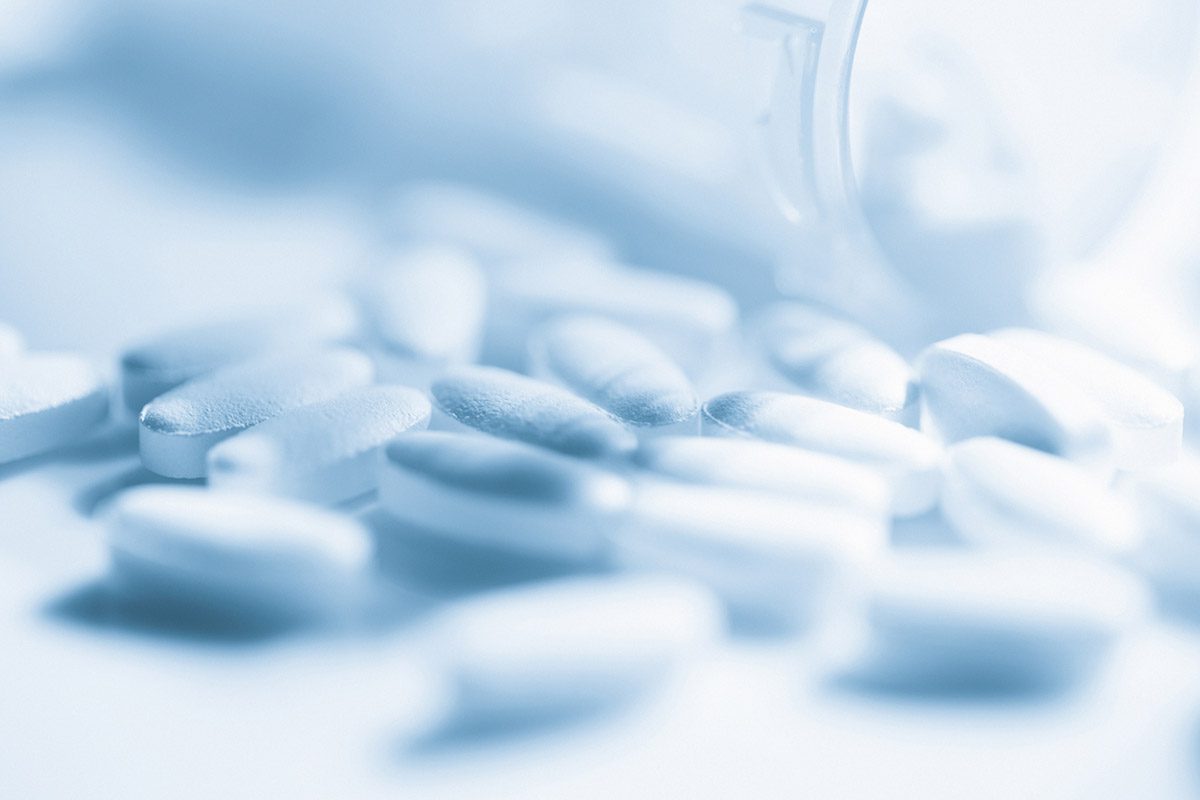Because this piece does not have an abstract, we have provided for your benefit the first 3 sentences of the full text.
The co-occurrence of alcohol and substance use disorders with schizophrenia is widely recognized to be both very common and very challenging. Clinicians have few proven psychosocial treatments to treat these comorbid conditions, and they usually have even fewer pharmacologic interventions that are readily available in the treatment settings that serve individuals with schizophrenia. Green and colleagues attempt to address this problem in their noteworthy report in this issue of the Journal.
This work may not be copied, distributed, displayed, published, reproduced, transmitted, modified, posted, sold, licensed, or used for commercial purposes. By downloading this file, you are agreeing to the publisher’s Terms & Conditions.
See article by Green at al

The co-occurrence of alcohol and substance use disorders with schizophrenia is widely recognized to be both very common and very challenging. Clinicians have few proven psychosocial treatments to treat these comorbid conditions, and they usually have even fewer pharmacologic interventions that are readily available in the treatment settings that serve individuals with schizophrenia. Green and colleagues1 attempt to address this problem in their noteworthy report in this issue of the Journal. The authors are to be highly commended for successfully conducting a sizable clinical trial in one of the most difficult patient populations imaginable—patients with schizophrenia/schizoaffective disorder and co-occurring alcohol use disorder. Their completion of a 6-month randomized treatment study in 95 subjects is an enormous achievement. The very paucity of such clinical trials, with a few exceptions, is a testament both to the need for such research and to its extreme difficulty. The reported work constitutes the largest pharmacotherapy trial aimed at this complex clinical problem to date, and the authors have made a substantial contribution to the clinical research literature on this topic. However, this report raises perhaps as many questions as it answers regarding what constitutes adequate pharmacologic treatment of patients with both schizophrenia-spectrum disorder and alcohol use disorder, and it clearly highlights the need for more research—and possibly different research—to find effective treatments.
Various different explanations have been offered to account for the high prevalence of co-occurring alcohol use disorder and other substance use disorders in patients with schizophrenia.2 Green and colleagues3 have previously proposed that this vulnerability to substance use disorder is tied to a postulated “brain reward circuitry deficit” that is associated with schizophrenia. Following on this hypothesis, they have further proposed that certain antipsychotic medications—exemplified by clozapine—have the potential to correct the reward deficit and thereby reduce the use of alcohol and other substances because they have low dopamine D2 receptor blockade and they block α2-adrenergic receptors and promote norepinephrine release. Regrettably, this hypothesis has yet to be fully tested, as, at the time of this writing, there have been no published results of prospective randomized placebo-controlled trials of clozapine in patients with substance use disorders. Rather than using clozapine in the present study, Green and colleagues1 examined the comparative efficacy of long-acting injectable (LAI) risperidone versus oral risperidone. The investigators hypothesized that alcohol use would be decreased with LAI versus oral risperidone treatment. They proposed that the lower steady state plasma concentrations of risperidone obtained with the LAI form would reduce dopamine D2 receptor blockade while preserving risperidone’s effects on adrenergic neurotransmission. The authors randomly assigned 95 patients with schizophrenia or schizoaffective disorder and alcohol use disorder to 6 months of treatment with oral or LAI risperidone, but provided neither psychosocial treatment for alcohol use disorder nor any specific alcohol use disorder treatment medications.
Green and colleagues1 found that neither oral nor LAI risperidone reduced alcohol use in patients with schizophrenia over 6 months of treatment. In fact, subjects in the oral risperidone group actually increased their heavy alcohol use over the course of the trial, despite the use of antipsychotic medication and despite the intensive structure, monitoring, and assessments that were provided through the process of research participation. Unlike oral risperidone, LAI risperidone at least did not increase alcohol use, but neither did it reduce alcohol use.
This study’s negative finding is quite significant and provides clear guidance to the clinical community: treatment with an antipsychotic medication alone, even when delivered in a highly structured research protocol, does not reduce alcohol use in schizophrenia. Green and colleagues1 have done an important service to the field by demonstrating this. Theirs is the first prospective randomized controlled trial available that measures the effect of antipsychotic medications on alcohol use in a well-characterized cohort of patients with both schizophrenia and alcohol use disorder. The authors have shown that alcohol use may worsen with oral risperidone, and that alcohol use continues unchanged, even with LAI risperidone, a state-of-the-art form of antipsychotic pharmacotherapy for the index condition of schizophrenia. Perhaps the most important conclusion to be drawn from this well-conducted study with its careful measurement of alcohol use is that, by itself, even the best schizophrenia pharmacotherapy is simply inadequate as a treatment to reduce alcohol use in patients with schizophrenia.
What is implied is that something more is needed when treating alcohol use disorder in schizophrenia, namely, the same sorts of interventions—such as alcohol use disorder-specific pharmacotherapy and counseling—that are known to be helpful to alcohol use disorder patients without schizophrenia. While alcohol use disorder medication may be helpful in schizophrenia patients even when provided without counseling,4 current recommendations (for example, those of the Department of Veterans Affairs5) generally support a multimodal approach that combines alcohol use disorder medications with some form of alcohol use disorder-specific counseling.
Fortunately, there is growing evidence that utilizing specific alcohol use disorder medications in patients with schizophrenia is both feasible and likely to be effective. Beginning with work by Petrakis and colleagues,6 naltrexone was shown to reduce alcohol use more than placebo in a small clinical trial. Of note, symptoms of psychosis were not reduced. Other specific alcohol use disorder pharmacotherapy trials in schizophrenia have included the work of Batki and colleagues4 using directly observed administration of naltrexone to reduce alcohol use and of Petrakis and colleagues7 demonstrating that disulfiram and naltrexone were each more effective than placebo in patients with psychosis. A larger controlled trial of directly monitored naltrexone8 and a smaller study of extended-release naltrexone9 have confirmed earlier findings6 regarding naltrexone’s ability to reduce alcohol use as well as its inability to improve psychosis.
The current report1 puts to rest the hope that antipsychotics alone can reduce alcohol use in schizophrenia—either directly, by correcting a hypothesized brain reward deficit, or indirectly, by reducing other symptoms of psychosis. Conversely, as shown by other investigators, medications for alcohol use disorder probably do not make a major impact on psychotic symptoms, even if they reduce alcohol use.6,8 Green and colleagues1 have done a heroic job in executing their large and difficult clinical trial. Their results point to the conclusion that the right pharmacotherapy for alcohol use disorder in schizophrenia spectrum disorder most likely consists of appropriate antipsychotic medication combined with medications that possess specific efficacy in the treatment of alcohol use disorder, ideally combined with alcohol counseling and medication adherence support.
Submitted: October 24, 2014; accepted October 30, 2014.
Potential conflict of interest: The author has received research funding from Alkermes.
Funding/support: This work was supported in part by NIH/NIAAA Grant RO1 AA013655 and Department of Defense Grants W81XWH-12-2-0137 and W81XWH-11-2-0245 and with the support of the resources of the San Francisco Veterans Affairs Medical Center.
Role of the sponsors: The sponsors had no role in the content of this commentary.
Disclaimer: Opinions expressed in this commentary are those of the author and do not reflect the views of NIH, the Department of Veterans Affairs, or the Department of Defense.
REFERENCES
1. Green AI, Brunette MF, Dawson R, et al. Long-acting injectable vs oral risperidone for schizophrenia and co-occurring alcohol use disorder: a randomized trial. J Clin Psychiatry. 2015;76(10):1359-1365.
2. Thoma P, Daum I. Comorbid substance use disorder in schizophrenia: a selective overview of neurobiological and cognitive underpinnings. Psychiatry Clin Neurosci. 2013;67(6):367-383. PubMed doi:10.1111/pcn.12072
3. Green AI, Zimmet SV, Strous RD, et al. Clozapine for comorbid substance use disorder and schizophrenia: do patients with schizophrenia have a reward-deficiency syndrome that can be ameliorated by clozapine? Harv Rev Psychiatry. 1999;6(6):287-296. PubMed doi:10.3109/10673229909017206
4. Batki SL, Dimmock JA, Wade M, et al. Monitored naltrexone without counseling for alcohol abuse/dependence in schizophrenia-spectrum disorders. Am J Addict. 2007;16(4):253-259. PubMed doi:10.1080/10550490701389732
5. Hawkins EJ, Grossbard J, Benbow J, et al. Evidence-based screening, diagnosis, and treatment of substance use disorders among veterans and military service personnel. Mil Med. 2012;177(suppl):29-38. PubMed doi:10.7205/MILMED-D-12-00125
6. Petrakis IL, O’ Malley S, Rounsaville B, et al; VA Naltrexone Study Collaboration Group. Naltrexone augmentation of neuroleptic treatment in alcohol abusing patients with schizophrenia. [published correction appears in Psychopharmacology (Berl). 2004;174(2):300] Psychopharmacology (Berl). 2004;172(3):291-297. PubMed doi:10.1007/s00213-003-1658-9
7. Petrakis IL, Poling J, Levinson C, et al; VA New England VISN I MIRECC Study Group. Naltrexone and disulfiram in patients with alcohol dependence and comorbid psychiatric disorders. Biol Psychiatry. 2005;57(10):1128-1137. PubMed doi:10.1016/j.biopsych.2005.02.016
8. Batki SL, Dimmock JA, Ploutz-Snyder R, et al. Directly monitored naltrexone reduces heavy drinking in schizophrenia: preliminary analysis of a controlled trial. Alcohol Clin Exp Res. 2009;33(6):116A.
9. Batki SL, Dimmock JA, Meszaros ZS, et al. Extended-release naltrexone for alcohol dependence in serious mental illness. Alcohol Clin Exp Res. 2010;34(6):176A.
aDepartment of Psychiatry, University of California, San Francisco School of Medicine and San Francisco Veterans Affairs Medical Center, San Francisco, California
*Corresponding author: Steven L. Batki, MD, Department of Psychiatry, University of California, San Francisco, San Francisco VA Medical Center, 4150 Clement St, San Francisco, CA 94121 ([email protected]).
J Clin Psychiatry 2015;76(10):e1336-e1337
dx.doi.org/10.4088/JCP.14com09611
© Copyright 2015 Physicians Postgraduate Press, Inc.
This PDF is free for all visitors!




